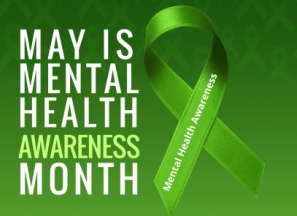
by Rev. Michael Heath | Oct 16, 2022
Recently, I received a questionnaire from my new doctor in advance of my annual wellness exam and this got me to thinking: Why not do the same for my new clients ?
In the past I’ve written a number of articles which try to explain what counseling is. Becoming Reasonable: Updating our Notions of Mental Health and Counseling. (revmichaelheath.com) Likewise, there are many books and articles which explain what to expect from counseling but not a lot which help you to mentally prepare for your first session. –What to Expect from Therapy | JED (jedfoundation.org) Many wonder if it is okay to just show up?
Although many folks do come in for their first session unrehearsed, I have found, over the years, that it’s helpful for a client to take a little time before the first appointment and ask themselves some basic questions about what it is that is bothering them.
So, today’s segment is just that, some things for folks to consider who have never gone to counseling before and who are a little uncertain about how to proceed. After all, it is intimidating to sit down with a complete stranger and talk about personal and even embarrassing problems. How does one begin ?
Reflecting on what’s bothering you not only helps to calm the jitters but it also can provide an important context from which the issue emerged. This wider perspective is necessary for the counselor to accurately assess and treat what is of concern to you.
Here are some questions to ask yourself which can help you clarify / communicate your experience to your counselor and help you get started:

by Rev. Michael Heath | May 17, 2022
I was recently in a seminar on polyvagal theory (Being Polyvagal: The Polyvagal Theory Explained – Windhorse Integrative Mental Health – Windhorse Integrative Mental Health (windhorseimh.org) and trauma when I was struck by how much the science which informs our understanding of psychological disorders has changed over the years.
As I look back to when I first began training in 1978, it is obvious that recent advances in neuro-biology have been extraordinary. In short, we have gone from thinking of emotional problems as originating in the brain to understanding that, in most cases, environmental trauma is the culprit. Indeed trauma damages the brain, specifically the vagal nervous system and hippocampus.
Nonetheless, scientific progress and innovative therapeutic techniques notwithstanding, the basic goal of psychotherapy has remained the same: To help people live more rationally in the present. Becoming Reasonable: Updating our Notions of Mental Health and Counseling. | Pastoral Counseling Syracuse NY (revmichaelheath.com)
Today, while the expressions of ” being present “or “living in the present” are widely used in the media and promoted by mental health professionals, How to Live in the Moment: 35+ Tools to Be More Present (positivepsychology.com) , what it actually means to live in the present is sometimes confusing.
Basically, being present means being able to be attentive to and to be aware of our own immediate experience. When our focus is on the present, we are then able to fully engage with others. While it sounds simple, many people have a hard time being present. With that in mind, there are two obstacles which prevent us from being emotionally present.

by Rev. Michael Heath | May 2, 2021
Despite all of the progress psychology and medical science has made, there are many who still hold an outdated and misleading view of psychological disorders and their treatment. Common Misconceptions About Psychotherapy (verywellmind.com) To be clear from the get go: 1) Most of the people who have mental health issues are normal people. Their problems are generally caused by past trauma or by current stress or a combination of both. 2) Most counseling is a process by which clients can expand their awareness of how their past experiences and present have combined to create perceptional distortions and irrational emotional and behavioral reactions . The impact of this expanded awareness enables individuals to perceive life more accurately and respond to it in a more congruent way. The lack of public understanding is problematic because it perpetuates stigma, confusion, unnecessary fears and avoidance of seeking help. Let me update and expand on two of the most common mental health myths.


